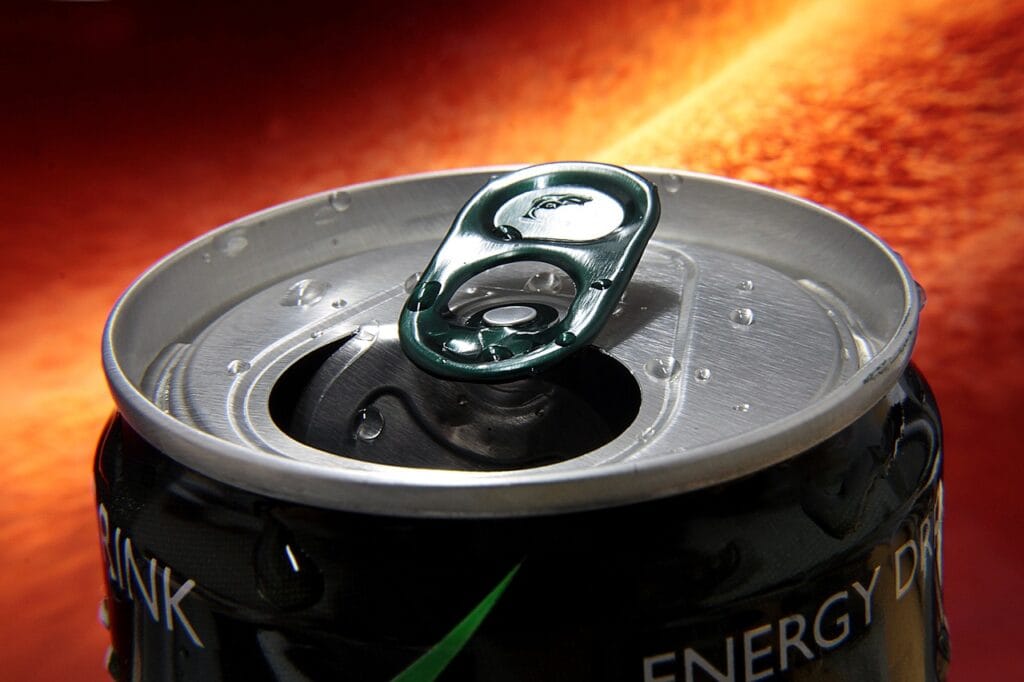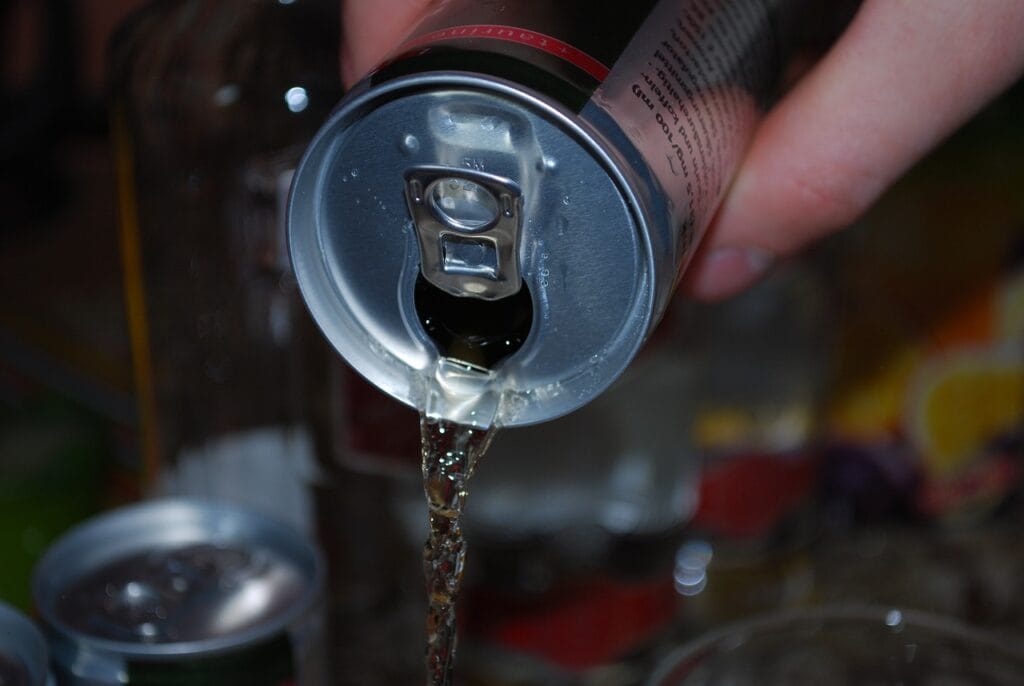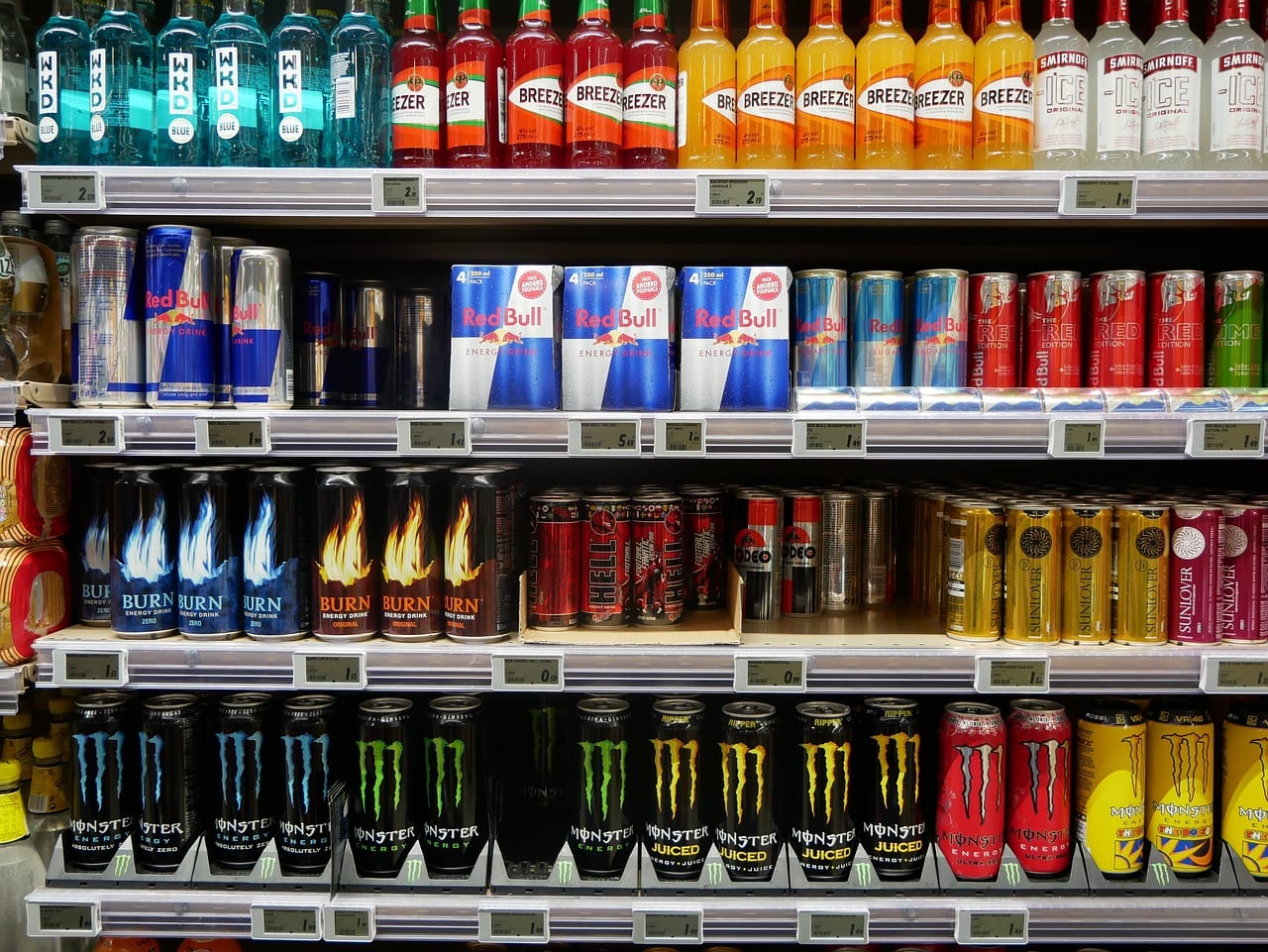Material updated ↓
There is an opinion that the use of energy drinks has a negative effect on the human body and is also addictive. We decided to check whether such fears are justified.
In January 2023, it was introduced into the State Duma of the Russian Federation bill on a ban on the sale of non-alcoholic energy drinks to children and adolescents; deputies also proposed banning their sale in a number of organizations (for example, in hospitals and cinemas). Later the Ministry of Economic Development and the Ministry of Industry and Trade criticized the draft law and sent it for revision, saying that it was not based on facts, but on an emotional assessment. In turn, the Ministry of Health also pointed out inaccurate wording, but in general expressed its readiness to support the initiative (however, at the time of writing this analysis it didn't arrive even before consideration at the plenary session of the State Duma in the first reading). Many media outlets have written about the dangers of energy drinks for human health, for example, “News", Lenta.ru And "Gazeta.ru" Articles You can also find this topic on the websites medical organizations, portals about healthy lifestyle And nutrition. Users also write about this social networks. Warns against excessive consumption of energy drinks and Rospotrebnadzor.
To understand how energy drinks affect the human body, let’s pay attention to their composition. Of course, it will be slightly different for different manufacturers and even different products of the same line, but if you look at the composition of three popular energy drinks in Russia (Red Bull, Adrenaline Rush And Burn), you can see that their main ingredients are water, caffeine, taurine, sugar (or other sweeteners) and B vitamins. They may also contain various preservatives, acidity regulators, flavorings, flavorings, and some other components - this greatly depends on the specific product.
The main tonic effect of such drinks is achieved through caffeine - at least, scientists from Canada and the USA, after conducting a study of existing scientific works, not found evidence that any other popular energy drink ingredient enhances cognitive or physical performance. WHO refers caffeine to central nervous system stimulants. The very effect of vigor is due to the fact that, when entering the body, this substance blocks neurotransmitter receptors adenosine, which reduces the activity of the central nervous system and causes the need for dream. A 250 ml can of energy drink contains about 70-80 mg of caffeine. For comparisons, in a cup of coffee of the same volume - 96 mg, black and green tea - 47 and 28 mg, respectively, in Coca-Cola - 22 mg. Rospotrebnadzor believes that consuming up to 150 mg of caffeine per day is not harmful to health, Control The US Food and Drug Administration allows consumption of up to 400 mg per day. Both departments emphasize that this is the maximum safe dose for a healthy adult. It is recommended that children and adolescents either avoid caffeine altogether or, if this cannot be avoided, consume it in significantly reduced amounts. quantities - no more than 100 mg per day. People with kidney and liver failure, cardiovascular disease, anxiety and certain other health problems, as well as during pregnancy recommended Include this substance in your diet with caution.

Excessive consumption of caffeine can cause increased blood pressure and heart rate, headaches, nausea, stomach upset and other negative effects. Moreover, we are not just talking about poor health or potential health problems in the long term - an overdose can lead to death. For example, in 2013, doctors barely had time save A 26-year-old American man admitted to hospital with a heart attack. The man had a history of smoking and regular excessive consumption of energy drinks (more than ten cans a day); doctors associated the attack with an overdose of caffeine. In 2017, a 16-year-old in South Carolina died from a heart attack caused by a large dose of this substance: within two hours he drank a latte, a large portion of sweet soda and an energy drink.
In addition, "Verified" is already wrote that caffeine, especially when consumed in large doses, can be addictive, and quitting it can be accompanied by withdrawal symptoms. Nevertheless, we are still not talking about addiction akin to drugs or alcohol, and gradually giving up caffeine is quite possible. Based on the recommendations of experts on the use of this substance, two to four cans of energy drink can be considered relatively safe for an adult, provided that caffeine does not enter the body from any other sources (for example, coffee or tea).
However, energy drinks contain another potentially dangerous component: sugar. A 250 ml can of energy drink contains 25–30 g. WHO recommends An adult should consume no more than 50 g of sugar per day, that is, one can of energy drink contains approximately half of the maximum daily dose. Moreover, the same permissible 50 g includes not only pure sugar or sweets like cakes and sweets - it is found in one form or another in many food products: fruits, ready-made sauces, etc. So even two cans of energy drink are highly likely to lead to exceeding the daily norm of sugar consumption, which, in turn, can cause many health problems, such as cardiovascular diseases, obesity, deterioration memory, depression and even Cancer. In addition, scientists have some grounds believe that eating sugar can be addictive, although there are no clear conclusions on this matter in the scientific community yet. The lines of popular brands of energy drinks include products that do not contain sugar, however, as previously wrote “Checked”, soda with sweeteners is not a healthier alternative to regular soda; it carries the same health risks. A similar conclusion holds true for energy drinks.
Taurine, also found in many energy drinks, is an essential amino acid that plays an important role in the functioning of the cardiovascular, digestive, muscular and nervous systems of the body. Normally, a person gets it from protein foods - meat, seafood, milk, etc. There is an opinion that taurine increases endurance during training, which can probably also be considered as the desired effect of consuming energy drinks. However research, conducted by scientists from different countries, have not yet given a clear answer as to whether taurine affects endurance; some experiments have not shown any effect. At the same time content There is too little taurine, as well as other potentially beneficial ingredients (for example, ginseng) in energy drinks to have any positive or negative effect, so this particular substance in such drinks is probably not worth fearing.

B vitamins are usually positioned by manufacturers as beneficial supplements that are supposed to have a positive effect on health. Typically, the consumer does not think that vitamins in a particular product can be dangerous, and often this is true. For example, vitamin B12 does not accumulate in the body, so it is impossible to overdo it. But excess B6 can lead to dermatological problems, nausea and heartburn. And with vitamin B3 (niacin) and you should be very careful - consuming it in too high doses can lead to skin rashes, nausea, visual disturbances and liver problems. For example, specialists from Florida in 2016 described happening, when, due to excessive regular consumption of energy drinks (four to five cans daily), a 50-year-old man developed non-viral hepatitis. The energy drinks he drank were high in niacin. Similar in 2011 happening occurred in Staten Island (USA) - a woman also developed acute hepatitis due to excessive consumption of energy drinks (about ten cans a day), and then doctors also blamed niacin. Of course, in this case we are talking about extremely high doses of energy drinks; it is extremely difficult to get an overdose of B vitamins from one can a day.
A separate danger comes from consuming energy drinks with alcohol. US Centers for Disease Control (CDC) warn from this practice, since caffeine masks the symptoms of intoxication - the person seems to be more sober than he actually is. However, this is just an illusion: caffeine does not reduce the toxic effects of alcohol and does not sober up. As a result, a person may drink too much and get severely poisoned, or, considering himself sufficiently sober, decide to do things that should not be done while intoxicated, for example, driving a car. Therefore, the popular cocktail of vodka with Red Bull is not the best option when choosing an alcoholic drink in a bar or club.
Thus, there is reason to believe that drinking one 250 ml can of energy drink per day does not have negative consequences for the body of a healthy adult. At the same time, in order not to increase the risk, it is advisable to adjust the rest of the diet, reducing the amount of sugar- and caffeine-containing products. Pediatricians recommend that children and adolescents avoid caffeine altogether, so they should avoid energy drinks completely. Those who have certain diseases, such as cardiovascular diseases, kidney and liver failure, etc., should not abuse such drinks. In addition, scientists consider it likely that the two key components of energy drinks - caffeine and sugar - can be addictive, which means that suspicions that addiction can develop from energy drinks are not unreasonable.
Correction from 10/30/2023: In a fragment of text describing a clinical case of the development of hepatitis due to excessive consumption of energy drinks, the type of hepatitis is corrected: hepatitis C, the researchers suggest, was suffered by the patient asymptomatically, while energy drinks provoked the appearance of acute non-infectious hepatitis against this background. The version of the analysis before changes can be found at link.
Cover photo: pixabay.com
Read on the topic:
- The New York Times Magazine. Who Made That Energy Drink?
- University of Miami Health System. Are There Healthy Alternatives to Coffee and Energy Drinks?
- Is it true that fruit juices are as harmful as soda?
If you find a spelling or grammatical error, please let us know by highlighting the error text and clicking Ctrl+Enter.






